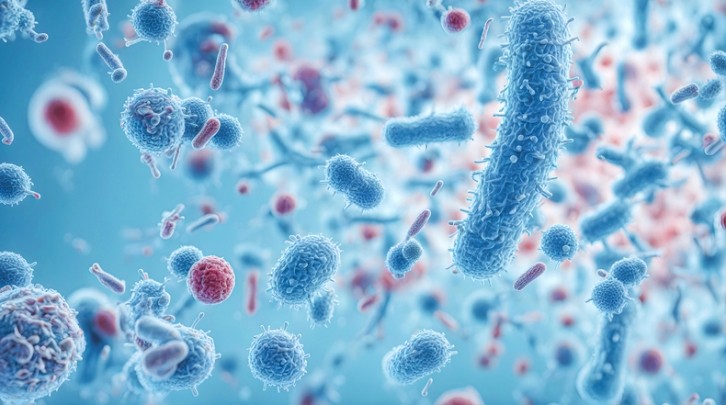Research finds causal link between Akkermansia and hypothyroidism

“As research on the gut microecology of thyroid disease advances, there is increasing evidence indicating that the gut microbiota plays a significant role in the progression of thyroid disease, either directly or indirectly,” the authors from Jinhua Central Hospital in China wrote. “The results of this study demonstrated that Akkermansia might act as a protective factor against hypothyroidism, opening up new opportunities for the prevention and treatment of hypothyroidism."
The two-sample Mendelian randomization study, published in the journal Frontiers in Nutrition, included data from 18,430 individuals (26,342 cases and 59,827 controls) to investigate the link between the gut microbiota and hypothyroidism, finding a causal relationship with Akkermansia abundance.
Gut health linked to underactive thyroid
Hypothyroidism (underactive thyroid), a condition resulting from reduced thyroid gland function and inadequate hormone production, is a widespread global issue, primarily driven by environmental iodine deficiency or autoimmune thyroiditis.
It is estimated to affect between 5% to 10% of the population globally and can pose various health risks, including heart disease and impaired brain development, significantly affecting quality of life.
Gut bacteria play a role in regulating immune responses, nutrient absorption and thyroid hormone metabolism. One clinical trial found that probiotic supplementation improved well-being in individuals with hypothyroidism.
However, establishing a precise mechanism remains challenging due to historical research limitations, according to the authors, who noted that "leveraging genetic markers to explore causal links between the gut microbiota and hypothyroidism could provide insights into disease mechanisms and potential therapeutic targets".
Akkermansia and hypothyroidism
The researchers analyzed gene sequencing profiles and genotyping data from a total of 18,340 individuals across 24 cohorts from countries across America, Asia and Europe.
Summary statistics for hypothyroidism were obtained, and the link between the gut microbiota and hypothyroidism was investigated through various methods, including MR-Egger, weighted median, weighted model, simple model, MR-PRESSO and inverse variance weighted (IVW).
MR analysis can eliminate the bias of reverse causation because allelic randomization always occurs before the onset of the disease.
The bacteria that were linked to hypothyroidism in forward Mendelian randomization analysis were subjected to reverse Mendelian randomization analysis.
Akkermansia, Butyrivibrio, Holdemania and Ruminococcaceae UCG-011 were identified as protective factors for hypothyroidism, whereas Anaerostipes, Intestinimonas and Ruminiclostridium 5 were found to have negative effects on the condition.
Final results indicated that Akkermansia had a positive impact on hypothyroidism, with an odds ratio of 0.84 based on the inverse variance-weighted estimates.
The authors noted that additional randomized controlled experiments are necessary to determine the precise mechanism.
Results of the reverse MR analysis showed that the gut microbiota was not significantly affected by hypothyroidism. The authors noted that it is still possible that the condition may affect the microecology of the intestines but that confirmation would require rigorous studies.
Potential mechanisms
The authors suggested that the microbiota could impact thyroid homeostasis through various pathways, including inducing immune-inflammatory responses and altering iodothyronine metabolism.
Most cases of hypothyroidism are due to Hashimoto’s thyroiditis, a type of thyroiditis caused by an autoimmune condition, and Akkermansia has been found to play a role in the immune system response.
Research has also found that increased intestinal permeability allows toxins, antigens or bacterial metabolites to enter the bloodstream from the intestinal tract and promote disease, and Akkermansia has been shown to have intestinal repair functions.
Additionally, maintaining intestinal homeostasis relies on the composition and amount of the gut microbiota, which plays a vital role in the production of short-chain fatty acids (SCFAs).
SCFA-producing bacteria—such as Akkermansia—are crucial in the regulation of sodium/iodide symporter expression in thyroid cells. One leading cause of hypothyroidism is inadequate iodine intake, and gut bacteria composition has been shown to affect the uptake and movement of essential minerals such as iodine, along with the required enzyme activity for synthesizing thyroid hormones.
“Probiotic or live biotherapeutic products and SCFAs are crucial factors in the development of hypothyroidism,” the study concluded.
Journal: Frontiers in Nutrition
doi: 10.3389/fnut.2024.1286593
“Cross-talk between the gut microbiota and hypothyroidism: a bidirectional two-sample Mendelian randomization study”
Authors: Shi, C. Et al











